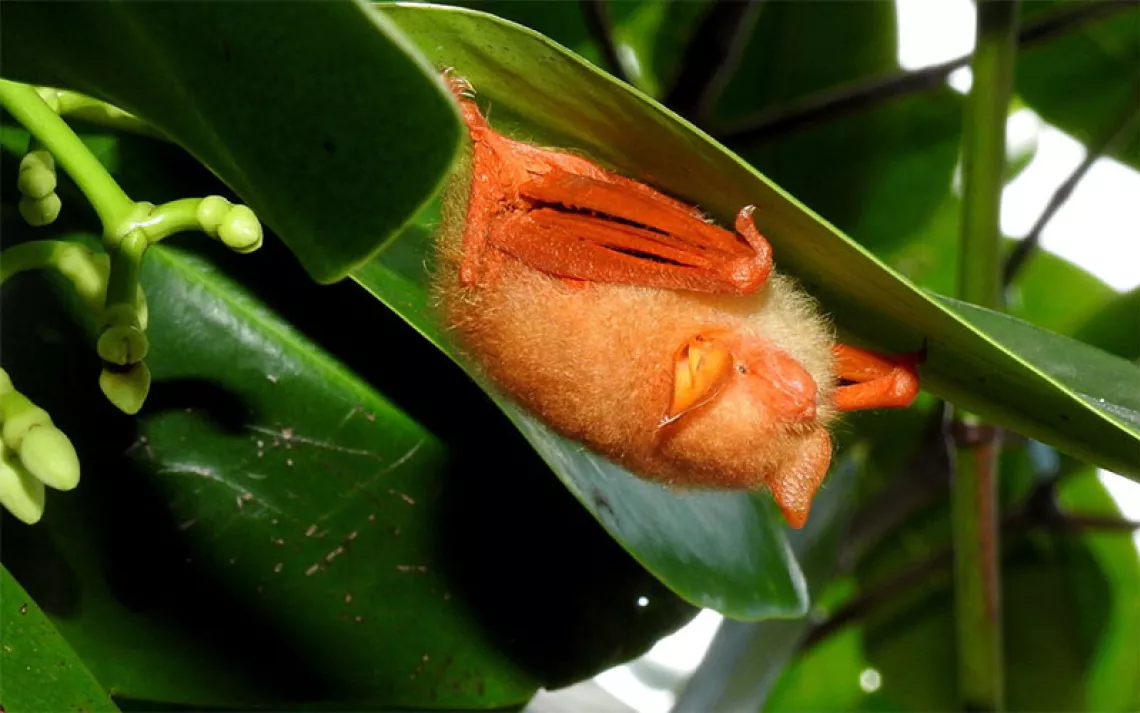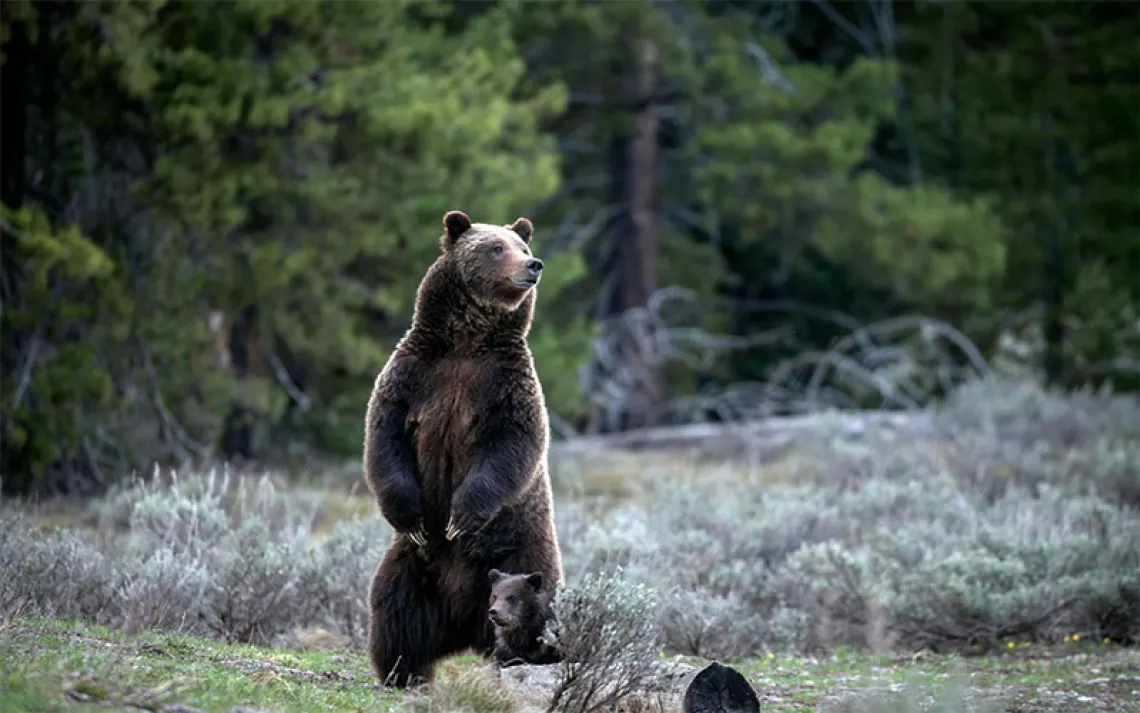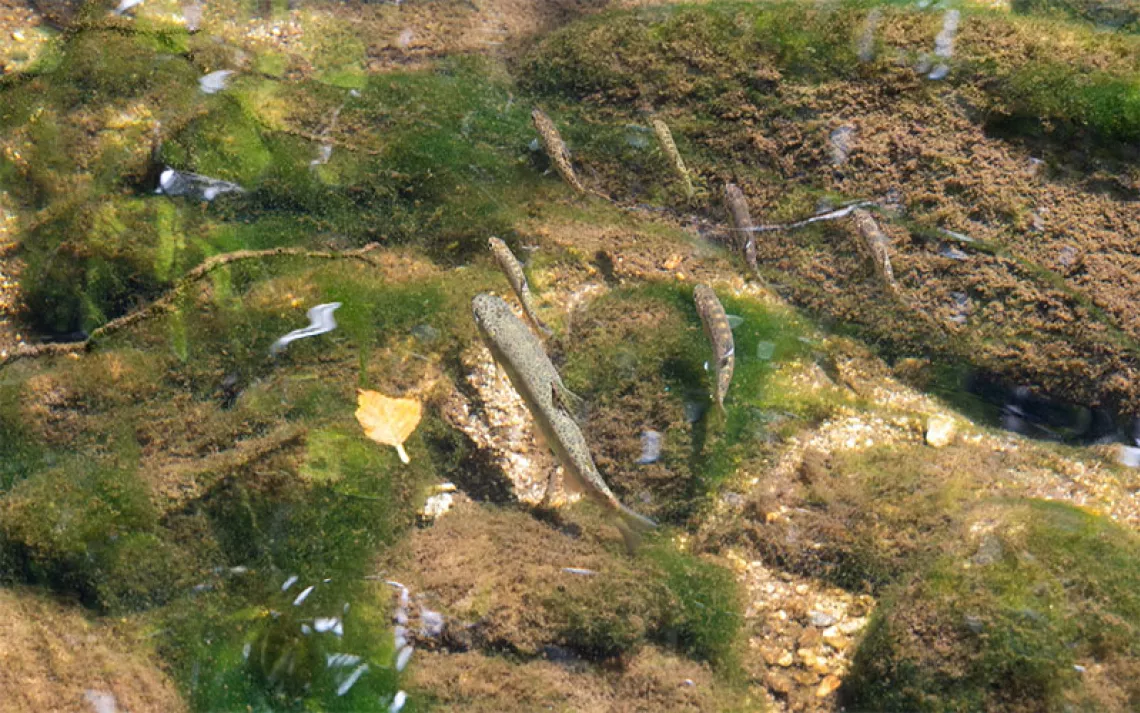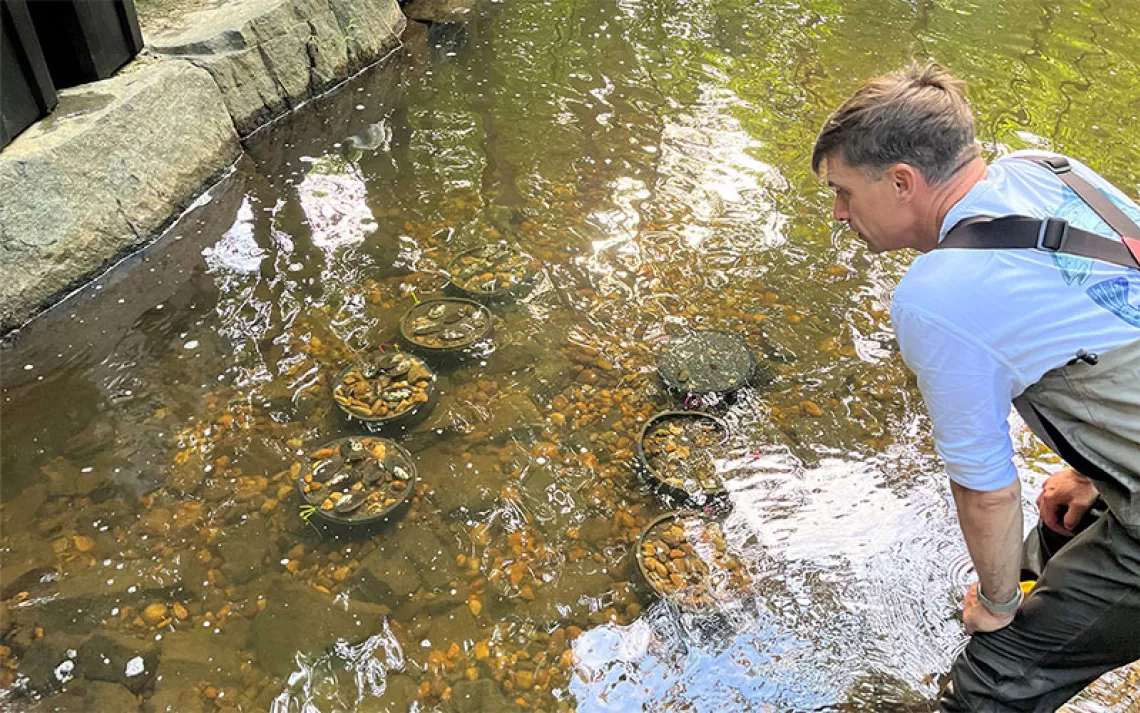Can Peanut Butter Treats Delivered by Drone Save the Black-Footed Ferret?
A tasty vaccine against the plague might rescue America’s rarest—and cutest—mammal

Kurt Kreiger (Model Avionics) and pilot Jonas Marcinko prepare a drone for flight. | Photo courtesy of USFWS
While we’re all waiting for pizza delivery by drone, unmanned aerial vehicles in Montana may soon be dropping peanut butter nuggets to prairie dogs and endangered black-footed ferrets. Rodents and mustelids in less-accessible areas of UL Bend National Wildlife Refuge will have their treats delivered by ATV.
The seemingly whimsical program is actually a serious attempt to save the black-footed ferret, North America’s rarest mammal, from extinction. Partners in the effort are the U.S. Fish and Wildlife Service, the World Wildlife Fund, and the U.S. Geological Survey National Wildlife Health Center. Ferrets are what’s known as “obligate predators” on prairie dogs: They depend on them for 90 percent of their diet and live exclusively in abandoned prairie dog burrows. But prairie dog numbers have nosedived in recent years, due to misguided eradication programs, conversion of their native-grassland habitat to agriculture, and their susceptibility to diseases like sylvatic plague. Black-footed ferrets eating infected prairie dogs contract plague themselves, and the highly infectious disease can wipe out entire populations. By 1987, only 18 black-footed ferrets remained.
An emergency captive breeding program boosted ferret numbers, but reintroductions were hobbled by continued outbreaks of plague. Enter the peanut butter pellets. Between 2001 and 2008, scientists at the USGS National Wildlife Health Center and the University of Wisconsin developed a plague vaccine that could be delivered via oral bait and would last for nine months. Starting in 2012, they set about testing delivery methods to get the vaccine to animals in the wild.
For accessible grassland areas, the partnership settled on all-terrain vehicles mounted with hoppers full of vaccine pellets, which are dropped to the ground and also shot to the left and right at regular intervals. For harder-to-reach areas, they employ an 18-pound drone, which drops the pellets as it flies. Initial results have been promising; biomarkers in the pellets reveal that 60 to 90 percent of the prairie dogs in the trial area had eaten them. A larger trial is scheduled for the summer of 2017. The goal is a plague-free prairie populated by healthy populations of prairie dogs and black-footed ferrets, all with a particular fondness for peanut butter.
 The Magazine of The Sierra Club
The Magazine of The Sierra Club



